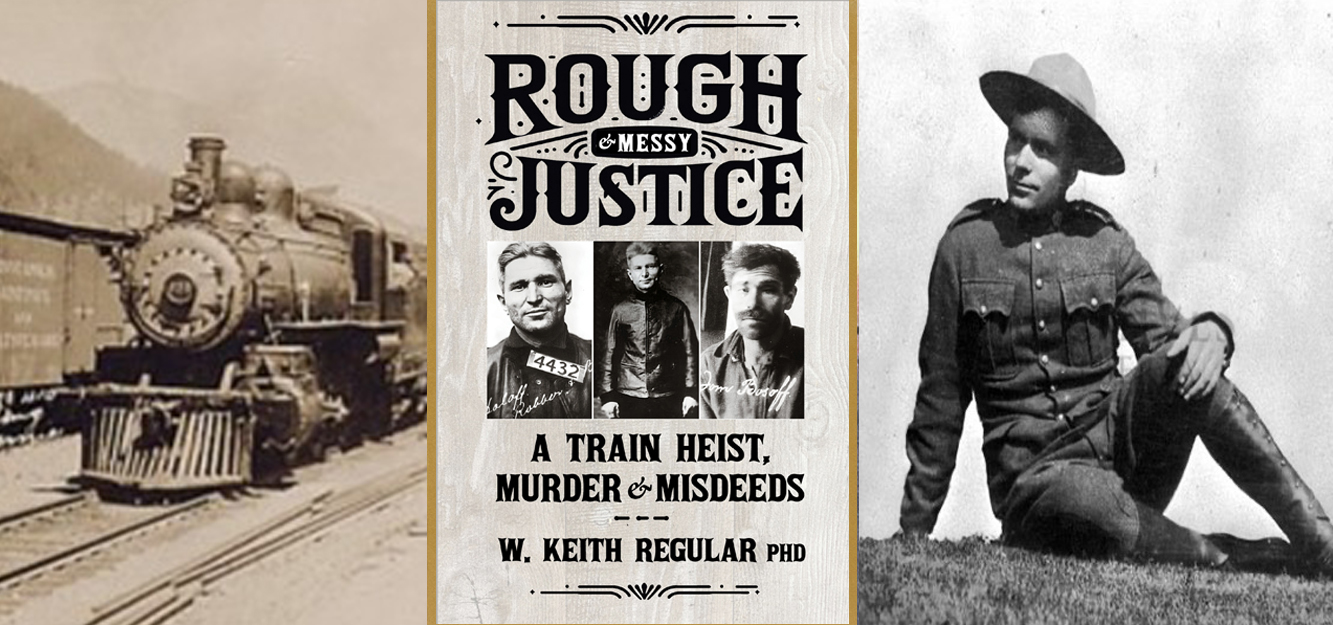ROUGH & MESSY JUSTICE
A Train Heist, Murder, & Misdeeds
BY W. KEITH REGULAR | Foreword by Hon. Peter W. L. Martin
BUY THE BOOK FROM: Local Indie Store, or Amazon, Indigo/Chapters, Barnes & Noble, Direct from Durvile
BUY THE AUDIOBOOK: Audible | Kobo | Google | Ebook, Kobo and others | PDF of photos for audiobook readers

"On August 2, 1920, three Russian bandits—Thomas Bassoff, George Akroff, and Ausby Auloff—board a train at Lethbridge, Alberta, bound for the Crowsnest Pass. Along the way, they pull out revolvers, robbing male passengers of money and jewellery, while sparing women and children. When the train makes an unexpected stop at Sentinel, the thieves flee—with one bandit stealing the conductor’s pocket watch. Days later, on August 7, Bassoff and Akroff appear in the town of Bellevue, where they are spotted by local authorities. A confrontation at the Bellevue Café leads to a deadly shootout, leaving two officers and Akroff dead, while Bassoff manages to escape. During the manhunt, Special Constable Nick Kyslik is tragically killed by friendly fire. Until now, the narrative of these events has been presented in the news media as straightforward. This book is a reassessment, exploring how and why it all went wrong." —From the Introduction.
---
Rough & Messy Justice brings to life the Rocky Mountains' Crowsnest Pass of 1920, a place of rugged geography, a mining economy, and diverse culture. Against this backdrop, an armed robbery of a CPR train leads to a dramatic shootout at the Bellevue Café between police officers and two of the three Russians bandits, recently arrived from the mines of Butte, Montana. The book meticulously details the crime, the shootout, and the thrilling manhunt for the escaped bandit.
The story continues with an account of the trial and its flawed application of the law, revealing overt racism in the press and police correspondence, a law enforcement coverup, a biased judge and jury, a lackluster defence counsel, and confused trial witnesses. These elements contribute to the tragic hanging of an innocent man.
Rough & Messy Justice critically examines social and racial prejudice, law enforcement misconduct, and judicial incompetence, exposing a wrongful conviction that challenges traditional assumptions about equality under the law.
DOWNLOAD THE INFO SHEET | LOOK INSIDE THE BOOK, FOREWORD AND CHAPTER 1
